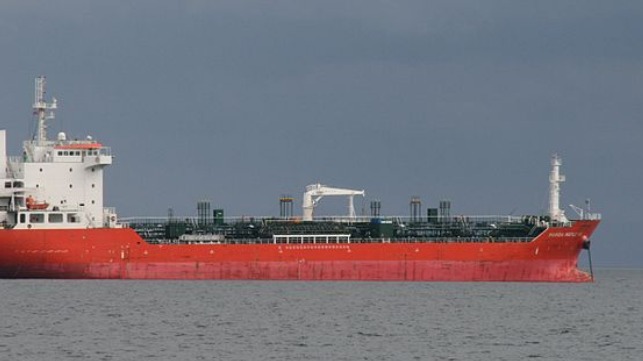Washington’s response to the recent seizure of a US-bound oil tanker by Tehran will determine whether regional trade flows will be disrupted and shipping insurance premiums hike, some industry analysts said.
At about 1:15 pm local time April 27, the Marshall Islands-flagged tanker Advantage Sweet was seized transiting international waters in the Gulf of Oman, according to the US Navy.
S&P Global Commodities at Sea data showed the Suezmax was sailing to Houston after loading 550,000 barrels of Eocene crude and 200,000 barrels of Ratawi crude from Kuwait for Chevron.
Destination Houston ‘noteworthy’
“The fact that the vessel was displaying a destination Houston and was seized is noteworthy,” said Robert Peters, associate director for risk analytics at advisory Ambrey.
“Iran has reacted to seizures of Iranian cargo in a similar way before but appears to have stopped short of seizing manifestly US cargo,” Peters told S&P Global Commodity Insights May 2.
The Financial Times reported Iran’s move could have been triggered by US authorities’ earlier sanctions enforcement, which involved redirecting the tanker Suez Rajan — loaded with Iranian crude and destined for China — to the US.
White House, the US State and Justice Departments declined to comment on Suez Rajan.
“The significance of this going forward will depend on how the US administration reacts,” Peters said. “… The US and those acting in concert will need to secure their shipping through the region. This might mean states incur costs and might mean there is some disruption to industry.”
In recent years, Iran has occasionally stopped commercial ships in moves widely interpreted as retaliation against what it perceived to be Western hostilities. Some countries’ navy forces would escort their tankers in response.
Market impact
Andrew Wilson, research head of shipbroker BRS, said insurance premiums in the region had not risen in the wake of the Advantage Sweet’s seizure, but “if tensions persist … then these would surely soar.”
“In the meantime, it appears that the presence of Western navies in the region will increase, which should hopefully give some degree of comfort to tanker owners whose vessels are operating in the region,” Wilson added.
Platts, part of S&P Global Commodity Insights, assessed the VLCC rate for shipping 270,000 mt from the Arab Gulf to China at $13.69/mt May 2, unchanged from April 27.
“The recent incident can be seen within the light of Iran’s well-established tactic of reciprocal action,” consultancy Dryad Global analyst Andrea Peniche Cobo said. “This event is unlikely to increase insurance premiums as it is not an incident outside of the regular risk profile for Iran.”
“This assessment, though, is contingent on no further escalation from the US and Iran.”
Despite quarters of negotiations, Washington and Tehran have failed to revive an international nuclear deal to lift sanctions on Iranian oil exports, but Iran has been gradually increasing overseas shipments nonetheless.
According to S&P Global Commodities at Sea, Iran’s crude and condensate exports reached 1.04 million b/d in March, up from the monthly average of 950,200 b/d in 2022.
Source: Hellenic Shipping News






